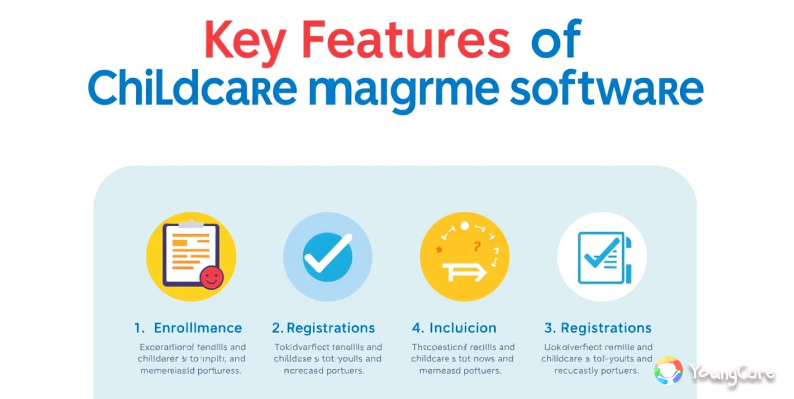Childcare management software has evolved from simple digital records to comprehensive platforms managing every aspect of early education centers. From attendance tracking and automated billing to real-time communication and staff coordination, these tools boost efficiency and parent satisfaction. While challenges such as cost and data security remain, AI-driven innovation is paving the way for smarter, more connected childcare experiences.
The Origin Story From Paper to Platform

Historically, childcare centers relied on manual processes that were time-consuming, error-prone, and difficult to manage. With the rise of digital transformation in the early 2000s, the need for centralized childcare management software became clear. Innovative platforms such as Procare and Brightwheel simplified administrative workflows, automating key tasks like attendance tracking, billing, and parent communication.
This digital shift helped childcare centers improve operational efficiency, reduce errors, and meet growing parental expectations for transparency and convenience.
Core Ideas and Features What Does Childcare Management Software Do?

Childcare management software plays a vital role in automating daily administrative tasks for early education centers. It simplifies key operations such as digital attendance tracking, automated billing, real-time parent communication, and online enrollment management. Additional features like staff scheduling tools and digital learning assessments help centers save time and maintain accuracy.
Today, a growing number of childcare centers across the U.S. have adopted childcare management platforms, proving their essential role in improving efficiency, transparency, and family engagement.
Real-World Impact Stories from the Field

The benefits of childcare management software are clearly visible in real-world success stories. For example, Emily, a preschool director, saved significant time using automated billing and invoicing tools, while parents like Michael appreciate the real-time parent communication features that keep them informed and connected.
By offering daily activity updates and transparent reporting, childcare management platforms help build stronger trust between parents and centers, improving family engagement and overall satisfaction with childcare services.
Challenges and Critical Perspectives

While childcare management software provides significant advantages, centers may face challenges such as cost barriers for smaller operations, staff learning curves, data security and privacy concerns, and feature overload. To maximize the value of their chosen digital childcare platform, providers should carefully assess these factors, ensuring smooth implementation, enhanced operational efficiency, and improved parental engagement.
Emerging Trends and the Future of Childcare Management

Innovation in childcare management software is accelerating with emerging trends such as AI-powered messaging, mobile-first platforms for easier access, integrated marketing tools to boost enrollment, and customizable learning frameworks. As the early education industry evolves, interoperability with payroll and HR systems will become crucial, enabling childcare centers to create a seamless, unified administrative experience that enhances efficiency, staff productivity, and parent engagement.
Conclusion
Childcare management software is no longer a luxury — it’s the digital backbone of modern early education. By integrating automation, communication, and analytics, these platforms empower centers to focus on what truly matters: nurturing young minds. As the industry embraces AI and mobile-first designs, now is the time for leaders to adopt scalable, secure, and parent-friendly systems that future-proof their operations.
Ready to manage childcare software? Empower your childcare center with smarter management tools today.

